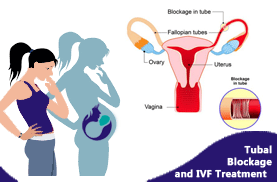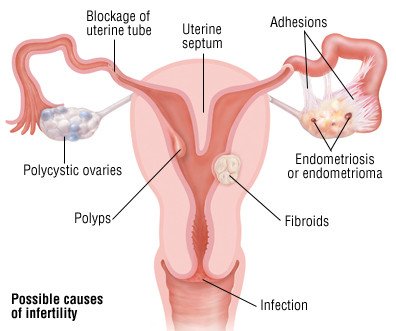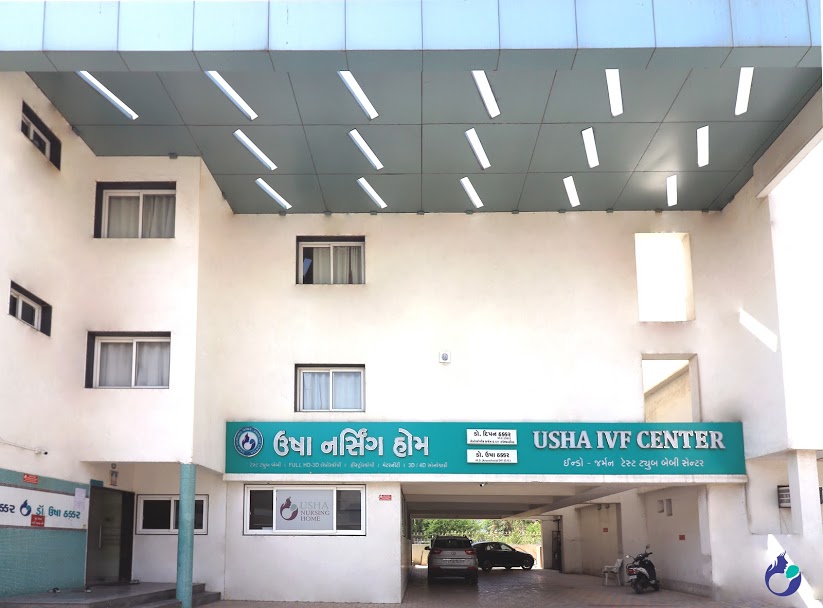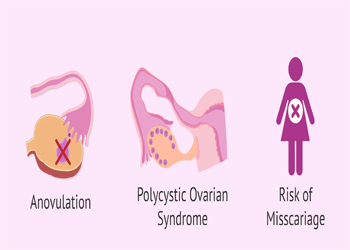Learn about Tubal Blockage and IVF Treatment at Usha IVF. Discover how our expert team can help you overcome fertility challenges. Schedule a consultation today.
Usha IVF, located in Anand, Gujarat, offers specialized treatment for tubal blockage through in vitro fertilization (IVF). Tubal blockage occurs when the fallopian tubes, which are responsible for transporting the egg from the ovary to the uterus, are obstructed. This can hinder the natural conception process and lead to infertility.
Our experienced team of fertility specialists understands the challenges faced by couples dealing with tubal blockage. We provide comprehensive diagnostic evaluations to determine the extent and location of the blockage, allowing us to devise a tailored treatment plan.

Tubal Blockage and IVF Treatment — Discover how Tubal Blockage and IVF Treatment at Usha IVF can help in overcoming infertility challenges. Learn about our advanced fertility solutions today.
IVF is a highly effective assisted reproductive technology that bypasses tubal blockage and increases the chances of successful pregnancy. It involves retrieving eggs from the ovaries, fertilizing them with sperm in a laboratory setting, and transferring the resulting embryos into the uterus.
At Usha IVF, we utilize advanced techniques and state-of-the-art facilities to optimize IVF outcomes. Our team of skilled embryologists, fertility specialists, and support staff work together to ensure personalized care, addressing each patient’s unique needs and concerns.
We understand that fertility treatment can be emotionally and physically challenging. That’s why we prioritize providing a compassionate and supportive environment, offering guidance and counseling throughout the entire journey.
If you are facing tubal blockage and seeking effective fertility treatment, Usha IVF is here to help.
Frequently Asked Questions: Tubal Blockage and IVF Treatment at Usha IVF
Q: What exactly is a tubal blockage?
⇒ Ans: Tubal Blockage and IVF Treatment is a condition in which one or both fallopian tubes are partly or totally blocked. This inhibits sperm from fertilizing the egg or the fertilized embryo from passing into the uterus. It is a prevalent cause of infertility in women.
Q: What effect does a tubal blockage have on fertility?
⇒ Ans: Tubal blockage can prevent sperm from reaching the egg or the fertilized embryo from reaching the uterus, hence inhibiting fertilization. This can make it harder for a woman to conceive naturally and raise the risk of an ectopic pregnancy.
Q: Is it possible to cure tubal obstruction without using IVF?
⇒ Ans: Tubal blockage can be surgically addressed with tubal surgery or hysteroscopic treatments. The success rate of these therapies, however, is dependent on the degree and location of the obstruction. IVF (In Vitro Fertilisation) may be indicated if the blockage cannot be cleared or if additional circumstances lead to infertility.
Q: What exactly is IVF?
⇒ Ans: In Vitro Fertilisation, or IVF, is an aided reproductive technology (ART) treatment in which eggs are fertilized with sperm outside of the body in a laboratory. The resultant embryos are subsequently transported into the uterus, circumventing any blockages in the fallopian tubes. IVF improves the odds of conception for couples who are infertile for a variety of reasons, including tubal blockage.
Q: How might IVF aid tubal blockage patients?
⇒ Ans: In vitro fertilization (IVF) bypasses the fallopian tubes by mixing eggs and sperm in the laboratory. The resultant embryos are then implanted in the uterus, where they can grow into a pregnancy. IVF is a potential approach for couples with tubal blockage to achieve conception by bypassing blocked fallopian tubes.
Q: How effective is IVF in situations of tubal blockage?
⇒ Ans: IVF success rates might vary based on a variety of factors, including the woman’s age, the quality of her eggs and sperm, and other personal circumstances. Usha IVF offers skilled fertility specialists that can examine your unique condition and provide personalized advice on the rate of IVF success.
Q: What is the IVF treatment procedure?
⇒ Ans: IVF therapy normally begins with ovarian stimulation to create numerous eggs, followed by egg harvesting, laboratory fertilization of eggs with sperm, and embryo culture. The embryos that arise are subsequently transported to the uterus. Usha IVF’s fertility consultant will walk you through each stage of the procedure and offer you all the help you need.
Q: Are IVF procedures dangerous or do they have adverse effects?
⇒ Ans: IVF therapy is typically safe, although it does have certain dangers, as with any medical process. Multiple pregnancies, ovarian hyperstimulation syndrome (OHSS), ectopic pregnancy, and unusual problems such as infection or bleeding are examples. Your fertility doctor will go over these concerns with you and take the appropriate steps to keep them to a minimum.



